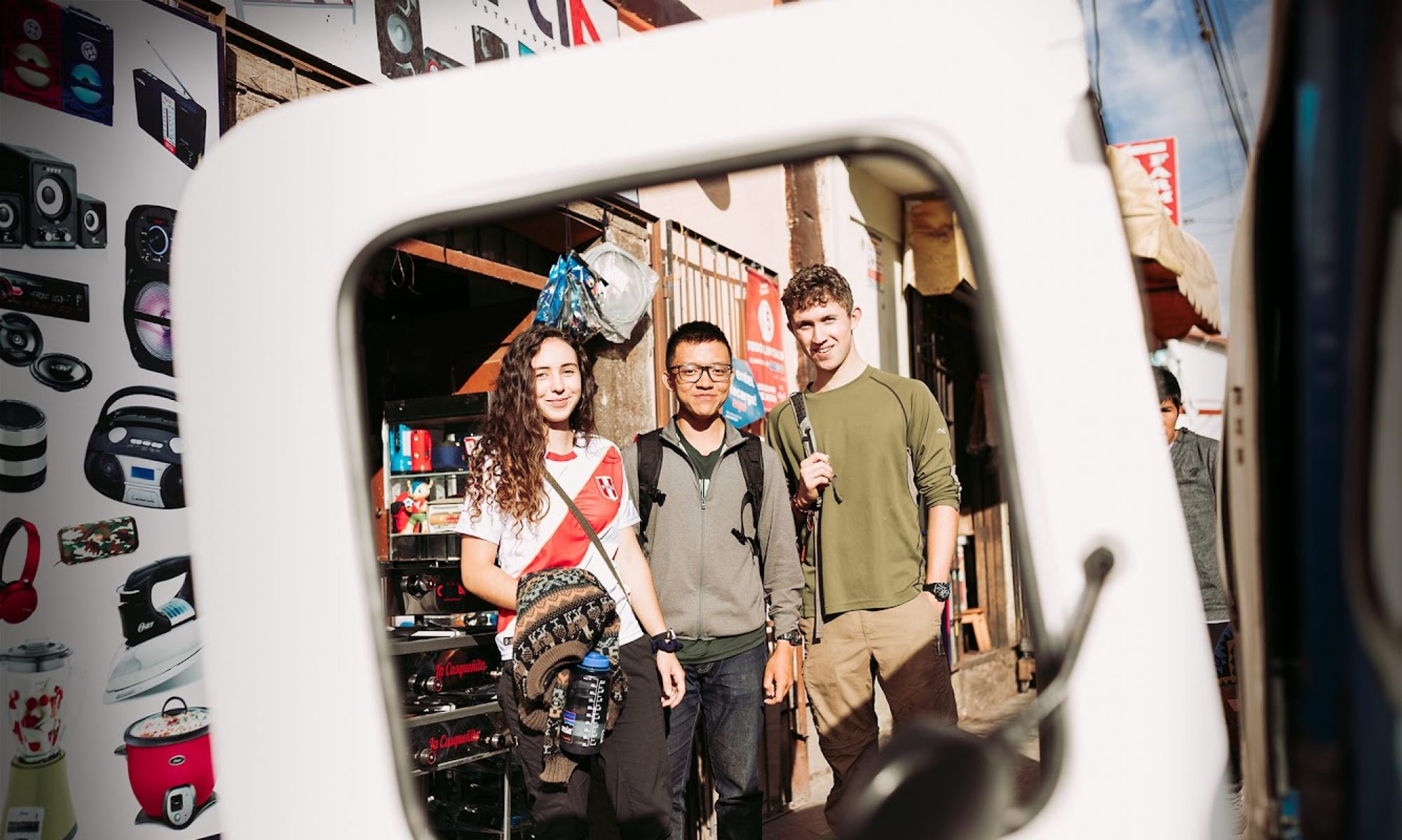
by Stephanie, Tufts 1+4 Participant
I have had more adventures in the last few weeks in Ecuador than in the last few years of my life. I have been to the mountains, the beach, and the rain forest. I have driven across water, over mountains, and on highways with nothing between me and the horizon. Waterfalls as tall as skyscrapers rain down on trails that I have hiked. And cities bigger than my hometown have spanned in front of me. Sometimes the sky is bright blue, other times it is gray and storming. At dusk, the sun paints rainbows in the sky using every color imaginable. During the night, millions of stars light up the black nothingness. But, without a doubt, the most amazing sight I have seen is the Andes mountain range.
I spent my entire childhood in Texas, a state known for its flatness. Starting in Austin, I can drive about six hours in every direction without reaching a single hill or mountain. Flat is a norm for me. But here in Ecuador, I am constantly surrounded by the most amazing mountain range on Earth, the Andes. Every time I see these huge, jagged pieces of rock, I cannot stop a smile from creeping on my face. It is a smile of pure wonder and amazement. These majestic pieces of Earth are so contradictory to the sights of my hometown. I feel lucky to witness these magnificent views every day. And the best place to look at these mountains uninterrupted by cities and towns is in Cajas National Park, about a 45 minute drive outside of Cuenca. I have driven through this park about 6 times, and each time has been more incredible than the last.

My last trip through Cajas this past Friday, on the way home from our trip to get student visas in Manta, was by far the best view yet. It had been a long day. I was running on four hours of sleep and we were five hours into the seven hour car ride home. I wanted nothing more than to put my head down, turn on my music, and imagine how great it would feel to lay down in my bed. Then we drove through the layer of clouds that had been blocking the mountain tops and my jaw physically dropped. An explosion of light and vivid views woke my mind from its slumber. The sun was slowly descending behind the angular mountain tops, leaving an array of colors in its wake. Each time the road would bend, the trees would disappear leaving only the layer of clouds we had just escaped from, stretching as far as my eye could see. The Andes beauty and strength in this moment was unparalleled.
I have always dreamed of a grand adventure, and my idea of this adventure has changed drastically over the years. But none of those dreams can compare to the reality of Cajas National Park, especially during a sunset. I feel invincible whenever I drive this road, like I can really make my dreams a reality. Then I realize, this feeling is true because I am living my grand dream of adventure here in Ecuador.







